Driveshafts & Parts
By OE Match
 Driveshaft bolt. Porsche 911 / 964 / 928
Driveshaft bolt. Porsche 911 / 964 / 928

- Porsche 911 1975-1977 3.0L Turbo (930)
- Porsche 911 1978-1989 3.3L Turbo (930)
- Porsche 964 (911) C2 1989-93
- Porsche 964 (911) C4 1989-93
- Porsche 964 (911) RS 3.6L 1991-93
- Porsche 964 (911) RS 3.8L 1991-93
- Porsche 964 (911) TURBO 3.3L 1991-93
- Porsche 964 (911) TURBO 3.6L 1991-93
- Porsche 928 4.5L 1978-82
- Porsche 928S 4.7L 1981-83
- Porsche 928S2 4.7L 1984-86
- Porsche 928S4 5.0L 1987-92
- Porsche 928GT 5.0L 1989-91
- Porsche 928GTS 5.4L 1992-95
Price is for each bolt.
Fits:
Porsche 911 1984 - 1989 Turbo & Turbo look
Porsche 964 C2 / RS / Turbo 1989 - 1993
Porsche 928 1978 - 1995 (all models)
Related reference numbers
Related, superseded, cross reference or alternative numbers for comparison.
90006712301
The product you are viewing cross references to these numbers
 Shop Securely
Shop Securely
 12 Month Warranty
12 Month Warranty
 Worldwide Delivery
Worldwide Delivery
Driveshaft is a mechanical component for transmitting torque and rotation, usually used to connect other components of a drive train that cannot be connected directly because of distance or the need to allow for relative movement between them.
As torque carriers, drive shafts are subject to torsion and shear stress, equivalent to the difference between the input torque and the load. They must therefore be strong enough to bear the stress, whilst avoiding too much additional weight as that would in turn increase their inertia.




